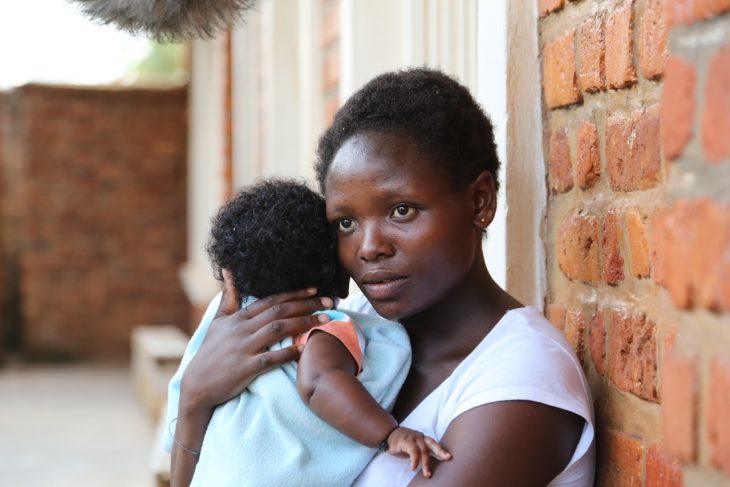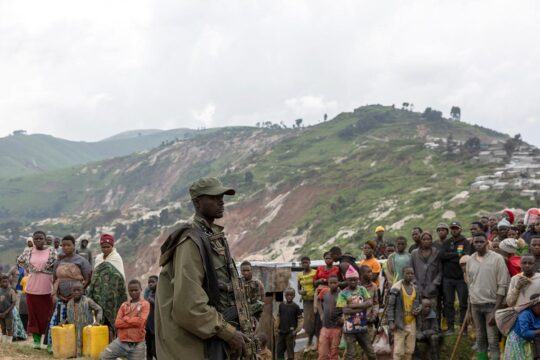Doctor Denis Mukwege arrived back in Kinshasa on Sunday for showings and discussions of two films about his work: “Congo, a Doctor to Save Women” by Angèle Diabang of Senegal, and “The Man who Mends Women” by Thierry Michel and Colette Braeckman of Belgium. Mukwege, a 61-year-old gynaecologist, had just returned from Europe where he had been speaking against impunity for perpetrators of sexual violence. Rape and sexual violence reached a height in the Democratic Republic of Congo during two wars from 1996 to 2003, in which as many as nine countries were involved. Together with his team, Dr. Mukwege has treated thousands of victims at the Panzi hospital in Bukavu, eastern DRC, which opened in 1999. Mukwege has been recognized many times for his work and nominated several times for the Nobel Peace Prize. He continues to stress that impunity creates fertile ground for sexual violence and other crimes. Dr. Mukwege spoke to JusticeInfo:
JusticeInfo: You have just returned from Europe, where you argued for an end to impunity and for the publication of a secret UN list of people deemed most responsible for crimes committed mainly during the two Congo wars. Why is this list still secret?
Dr. Denis Mukwege: I think it’s a way to perpetuate violence, because if people see they can commit grave crimes and that their identities are withheld instead of withholding the names of the victims, then justice is all upside-down! We will never be able to start the process of healing the victims of this war if those who have committed these abuses, these crimes, cannot at least present their apologies to the victims. Today, more than ever, we need to fight against impunity. It is clear that we are struggling to emerge from crisis. The war ended officially in 2002, but murders, assassinations, raping, looting, destroying and other barbaric acts continue quite simply because we have never had a process of truth, reconciliation and reparation.
JusticeInfo: According to a senior UN official, the Africa group in the UN is totally committed to blocking this list, and some countries are threatening to pull their troops out of UN peacekeeping missions if it were to be made public…
DM: We Africans need to act together and show that we are united in our struggle against crime. (…) The Mapping report [UN report which detailed 617 grave crimes committed in the DRC between 1993 and 2003] said crimes have been committed which may classify as genocide. Why should we put that aside? There should not be double standards. Why should the former Yugoslavia get an international tribunal to deal with its past while they say to us that we should forget the 617 documented crimes because people are threatening to pull out of UN forces? I think this is quite simply an aberration. If there is to be justice, it should be justice for everybody, not double standards.
JusticeInfo: Do you get the feeling that impunity is being reduced in the DRC?
DM: The rhetoric has evolved a lot. For example, when people say “Break the Silence!” (name of a campaign launched by the office of Jeanine Mabunda, President Joseph Kabila’s special representative on sexual violence and recruitment of child soldiers), I think that is positive. But how do you break the silence? Do you do it by giving women victims a platform to express themselves? Or by saying “Madame, we will see your complaint through to the end”? Or by supporting the judicial system so the judges can do their work correctly? And then, if people are convicted, where are the reparations? I think we need concrete acts. It is not enough to hold a press conference when you catch small fry to say that impunity is being reduced. We need action to tell people that raping a woman is a serious crime, that it goes against our humanity. And I think that will only happen when all the victims can feel that their complaints are heard.
JusticeInfo: Do we need a Truth Commission like in South Africa at the end of Apartheid?
DM: Many crimes were committed in the Democratic Republic of Congo by foreign armies on both sides. They committed crimes, but what court has been set up to try them? There were crimes committed by local armed groups. What judicial mechanism is dealing with that? In transitional justice, there are prosecutions, but I think we have no mechanism. The President promised to set up mixed Chambers with regional competence. If he had that plan, it means there is a problem, but that problem has never been resolved. (…) Prosecutions are an important part of transitional justice. You can’t just brush over the past, saying: “You were raped, Madame, and your whole family killed, now we can put it behind us”. I think we need to tell the truth. It is only when these mechanisms have finished their work that people will be able to reconcile with each other and that victims will get reparations – which may be material or moral, collective or individual. None of that has ever been done.






